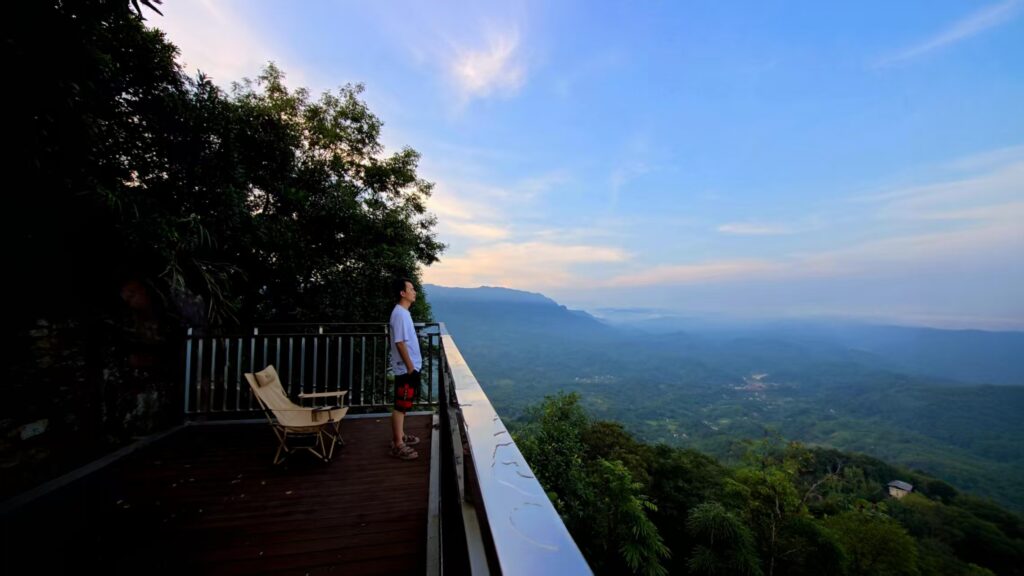After 35, life feels like all its strength has been drained, and you realize there’s no secret code to it—just a process of gradually seeing the truth. The core of human nature isn’t warmth but selfishness buried deep in our bones and an innate loneliness. Once you see this, even the urge to reach out fades—no expectation of companionship, no hope for care, no more foolishness in measuring your worth in others’ hearts.

When others come close, you’re just scenery they pass by; when they leave, you don’t even bother leaving a silhouette. Life’s experiences are nothing but being forced through one barren stretch after another: confusion in school, exhaustion after work, indifference in marriage, emptiness after heartbreak, panic in unemployment, numbness after failure. Even illness and death feel like prewritten scripts, waiting for you to step into them. Regrets, setbacks, impermanence, the sting of not being liked—these aren’t things you “allow”; they’re the daily bitter pill you swallow. Inner freedom? It’s just the calm of accepting your fate.
People talk about a “noble soul,” but after rolling through life’s dirt, even your soul gathers dust. Gentleness is a luxury, refinement a decoration, both shattering like glass against reality. Keeping to yourself in your own world is just a dignified way of being ignored; going with the flow in others’ worlds is just an excuse for being forgotten.
Time doesn’t bring soulmates; it only sifts people away, leaving you alone. It doesn’t teach you to shed worldly desires; it just grinds down your expectations, forcing you back to your empty core. Don’t fight with family? But those closest to you are the ones who chill your heart the most. Parents’ nagging hides control, a partner’s silence hides distance, and children’s growth hides their drifting away. Temper or no temper, what’s the difference? Emotions have long cooled in silence, and even arguing feels like wasted energy.
Reconciling with yourself? It’s just accepting that “this is as good as it gets.” Your strengths blur under life’s weight; past events can’t be forgotten—they sit heavy in your heart, pricking you now and then. A big windshield doesn’t help when the road ahead is shrouded in fog, directionless. Being critical of loved ones is instinct, but you lack the energy to even lose your temper, so what’s the point of talking about grace?
The greatest lesson in life isn’t how to be happy—it’s how to endure the endless bitterness day after day. Birth is a suffering you don’t choose, marriage a gamble on luck, and even mustering the strength to manage your emotions runs dry. All you can control is not falling apart too messily in the dead of night. Parental love, a good partner? That’s someone else’s script, not yours. Thin family ties, bad relationships? That’s the norm for most, and you just grit your teeth to live for yourself—but living itself is exhausting enough.
Life’s bitterness numbs you, and even quiet discontent feels like a luxury. Snow fears the sun, grass fears frost, people fear poverty, and love fears pain—but the greatest fear is losing the courage to hope for warmth. If you’re honest, others think you’re easy to fool; if you’re useful, people flock to you; if you’re useless, even your shadow deserts you. This isn’t just reality—it’s life’s truth.
Good connections aren’t born from kindness but from your value to others. If you don’t bloom, the world is a wasteland; if you lose your strength, even breathing feels wrong. Don’t complain about the world’s coldness—save that energy. Self-improvement? It just moves you from one exploited corner to another calculated position.
Life is a play, and we’re all actors forced onto the stage, too tired to even be the audience. If you don’t play your role well, no one cares about your performance. Everything happens by chance, and in the end, dust returns to dust, earth to earth. There’s nothing in this world worth clinging to.







Comments NOTHING